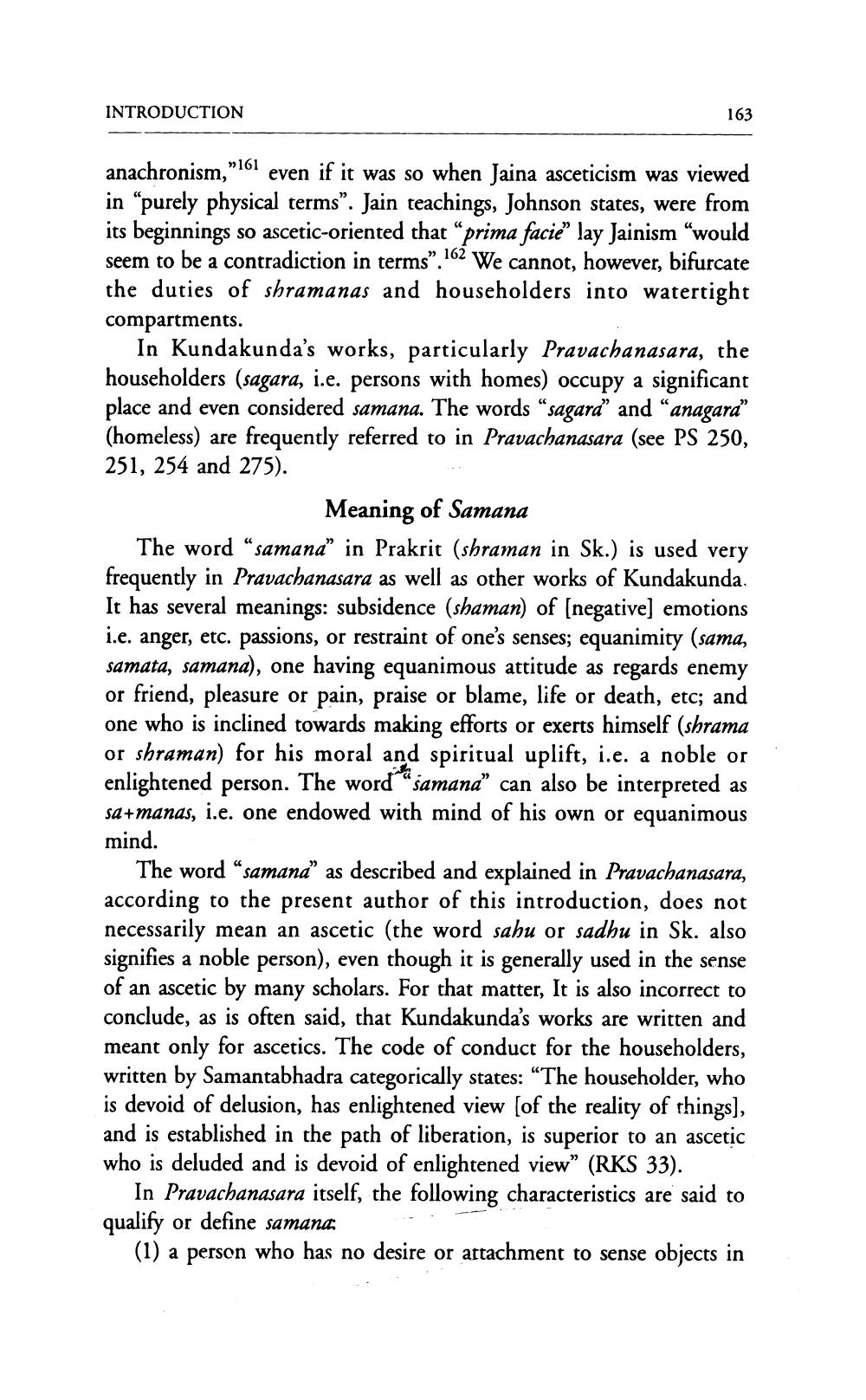________________
INTRODUCTION
163
anachronism,"161 even if it was so when Jaina asceticism was viewed in “purely physical terms”. Jain teachings, Johnson states, were from its beginnings so ascetic-oriented that “prima facie” lay Jainism “would seem to be a contradiction in terms”. 162 We cannot, however, bifurcate the duties of shramanas and householders into watertight compartments.
In Kundakunda's works, particularly Pravachanasara, the householders (sagara, i.e. persons with homes) occupy a significant place and even considered samana. The words “sagard” and “anagara” (homeless) are frequently referred to in Pravachanasara (see PS 250, 251, 254 and 275).
Meaning of Samana The word “samana” in Prakrit (shraman in Sk.) is used very frequently in Pravachanasara as well as other works of Kundakunda. It has several meanings: subsidence (shaman) of (negative) emotions i.e. anger, etc. passions, or restraint of one's senses; equanimity (sama, samata, samana), one having equanimous attitude as regards enemy or friend, pleasure or pain, praise or blame, life or death, etc; and one who is inclined towards making efforts or exerts himself (shrama or shraman) for his moral and spiritual uplift, i.e. a noble or enlightened person. The wordsamana" can also be interpreted as sa+manas, i.e. one endowed with mind of his own or equanimous mind.
The word “samana” as described and explained in Pravachanasara, according to the present author of this introduction, does not necessarily mean an ascetic (the word sahu or sadhu in Sk. also signifies a noble person), even though it is generally used in the sense of an ascetic by many scholars. For that matter, It is also incorrect to conclude, as is often said, that Kundakunda's works are written and meant only for ascetics. The code of conduct for the householders, written by Samantabhadra categorically states: "The householder, who is devoid of delusion, has enlightened view (of the reality of things], and is established in the path of liberation, is superior to an ascetic who is deluded and is devoid of enlightened view” (RKS 33).
In Pravachanasara itself, the following characteristics are said to qualify or define samana.
(1) a person who has no desire or attachment to sense objects in




